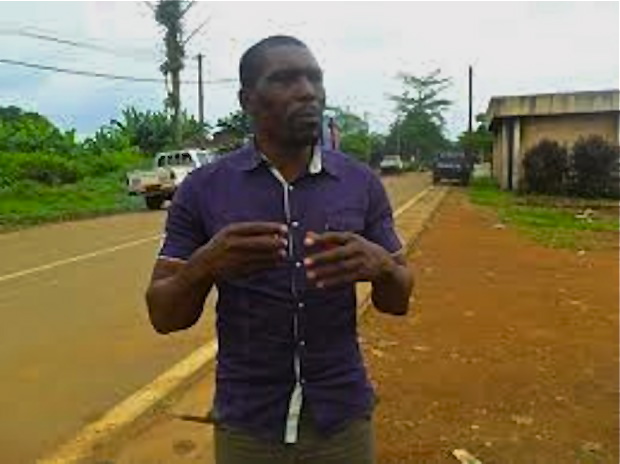An internationally-renowned environmental human rights defender, Nasako Besingi, is being pursued in the courts in Cameroon for defending his own community’s land rights. However, the company he is peacefully protesting against is seeking favourable treatment from the state for its own lawsuits, according to new evidence obtained by Greenpeace Africa and the Forest Peoples Programme (FPP).

Besingi had his pending case for unlawful assembly adjourned until December 3 last week. The charges pertain to peaceful meetings he organised to protest the plans of US agribusiness company Herakles Farms to establish a huge palm oil plantation on forested land near his home village of Mundemba, South West Region.
“Nasako has committed no crime other than exercising his democratic right to protest at what he believes to be a project detrimental to his community, his environment and local livelihoods,” said Irène Wabiwa Betoko, forest campaign manager with Greenpeace Africa.
The Herakles Farms project, originally aimed at clearing some 70,000 hectares of mainly dense forest, has run into financial problems in recent years and scores of former employees have now taken legal action seeking unpaid wages and claiming racial discrimination among other grievances.
However, according to evidence seen by Greenpeace Africa and FPP, the company has requested that the presidency of Cameroon help them enforce an arbitration clause in their employment contracts that means such grievances can only be heard in New York. Yet the Herakles Cameroon subsidiary, SGSOC, has no office in the United States.
“The fact that Herakles Farms is using the Cameroon legal system to both punish its critics and trying to involve the highest authorities in its own legal problems is an alarming discovery.” Wabiwa says. “That an employee can only take up a grievance in a foreign country places an unfair insurmountable burden on employees and the independence of the judiciary has to be upheld at all times.”
It has also emerged that Herakles Farms appears to have withdrawn from day to day operations on its plantation. Jonathan Watts has been named as the new chief executive and also runs the Volta Red palm oil in Ghana, a plantation that was also acquired from Herakles Farms. This change in structure comes despite the fact the company reportedly received a bill for unpaid taxes in May this year for nearly $40,000.
The company’s palm oil project has faced fierce local and international opposition since it was announced. Originally operating without a valid land lease it would destroy an area of natural forest, surrounded by protected areas that supports the livelihoods of thousands of people and is home to rare and endangered wildlife including the chimpanzee and drill.
According to Greenpeace Africa, Besingi has been “repeatedly threatened and physically assaulted because of his peaceful opposition to the project.” Last week, he was found guilty of several charges including defamation and was threatened with a three-year jail term if he did not pay a fine and legal costs.
In recent years, the Congo Basin, the world’s second-largest rainforested area, has been targeted by palm oil investors from around the world who view it as “a new frontier” for production. Many projects are opaque in nature and are pushed through without adequate Free Prior and Informed Consent (FPIC) of local communities, creating social conflict and harmful deforestation.
